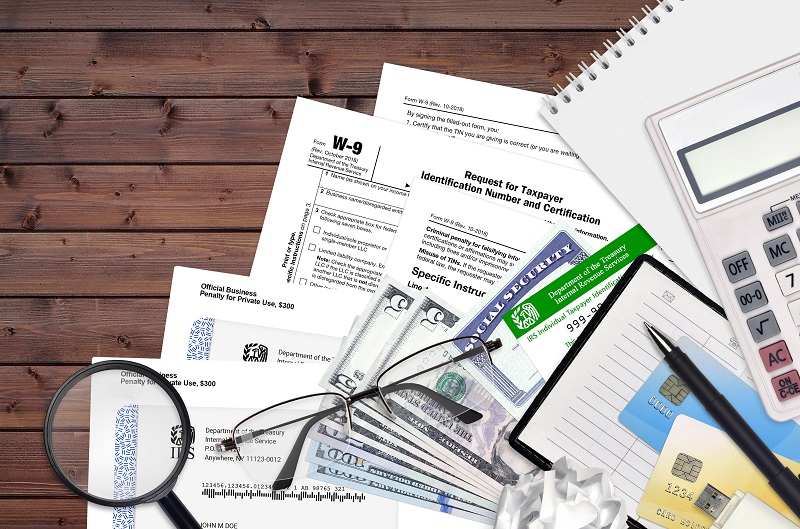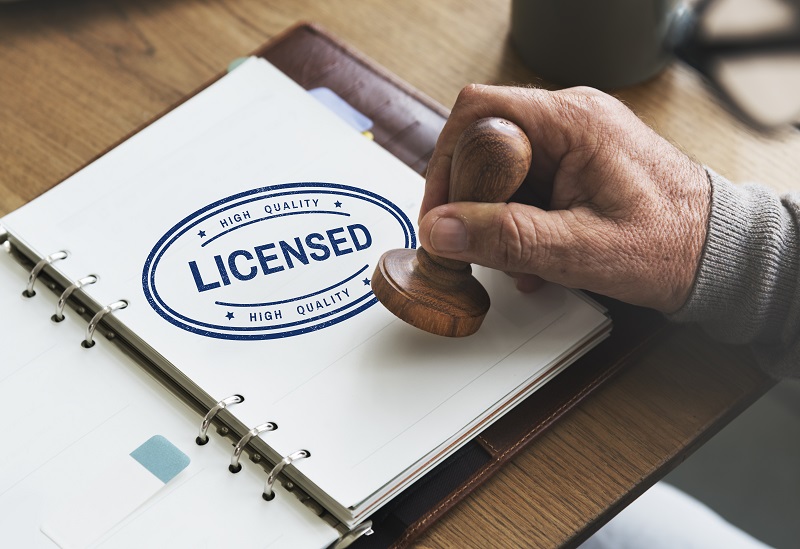If you’re considering entering the credit repair business in Rhode Island, understanding the specific laws and regulations is crucial. Delve into this comprehensive guide to learn about the legal requirements and best practices for launching and operating.
Choose a Business Structure

Decide whether you want to operate as a sole proprietorship, partnership, corporation, or limited liability company (LLC). Each structure has its own advantages and disadvantages, so consult with a legal or financial advisor to determine which is best for your specific situation.
In Rhode Island, there are several business structures that can be used for credit repair. Here are some of the most common:
Sole Proprietorship:
A sole proprietorship is an unincorporated business owned and operated by one person. This is the simplest and most common business structure for credit repair businesses.
Limited Liability Company (LLC):
An LLC is a business structure that combines the benefits of a corporation and a partnership. It provides limited liability protection to its owners while allowing them to enjoy pass-through taxation.
Corporation:
A corporation is a legal entity that is separate from its owners. It provides limited liability protection to its shareholders and can raise capital by issuing stock.
Partnership:
A partnership is a business structure where two or more individuals share ownership and profits. There are two types of partnerships: general partnerships and limited partnerships.
Register Your Business

If you choose a business structure other than a sole proprietorship, you’ll need to register your business with the Rhode Island Secretary of State. Visit their website to find information on the registration process and fees.
To register your credit repair business with the Rhode Island Secretary of State, you will need to visit their Corporations Division website. Follow these steps:
- Visit the Rhode Island Secretary of State’s Corporations Division Website.
- Click on “Start or Register a Business” in the “Business Services” Section.
- Read the information provided about the various business structures and requirements for starting a business in Rhode Island. This will help you understand which structure is best for your credit repair business.
- Choose the appropriate business structure for your credit repair business (e.g., LLC, corporation, etc.). Each business structure has its own registration process and fees.
- Complete the required forms and submit them online or by mail, depending on the business structure you’ve chosen. You will need to provide information about your business, such as its name, registered agent, and principal office address.
- Pay the required filing fee. Fees vary depending on the business structure you’ve selected. You can find the fee schedule on the Rhode Island Secretary of State’s Corporations Division website.
- Once you’ve submitted the required forms and fees, the Rhode Island Secretary of State’s office will review your application. If approved, your business will be officially registered with the state.
Remember to consult with legal professionals or appropriate state agencies for the most accurate and up-to-date information about starting a credit repair business in Rhode Island.
Rhode Island does not currently require a surety bond. However, you should consult with the Rhode Island Attorney General’s Office and the Rhode Island Secretary of State to obtain the most recent information.
Obtain an EIN

If you have employees or operate as a corporation or partnership, you’ll need to obtain an Employer Identification Number (EIN) from the IRS. This can be done for free online at the IRS website.
To obtain an Employer Identification Number (EIN) from the IRS, you can follow these steps:
Determine If You Need an EIN:
If you are starting a new business, hiring employees, or forming a partnership, corporation, or LLC, you will need an EIN.
Visit the IRS Website:
Go to the IRS website and click on “Apply for an Employer Identification Number (EIN)”.
Choose the Application Method:
You can apply for an EIN online, by fax, by mail, or by telephone. The online application is the fastest and most convenient method.
Complete the Application:
Provide the necessary information on the application, including your legal name, business name, business structure, and contact information.
Submit the Application:
After completing the application, submit it electronically or by fax or mail, depending on the application method you chose.
Receive your EIN:
Once your application is processed, you will receive your EIN from the IRS. You can then use it to open a business bank account, hire employees, and file tax returns.
Obtain Any Required Licenses or Permits

Credit repair businesses in Rhode Island may require a specific license or permit, depending on the services they offer. Consult with a legal professional or contact the Rhode Island Department of Business Regulation for more information.
Yes, there are some licenses and permits that may be required to operate a credit repair business in Rhode Island. Here are some examples:
Credit Services Organization Registration:
In Rhode Island, credit repair companies are considered Credit Services Organizations (CSOs) and must register with the Rhode Island Department of Business Regulation. The registration fee is $100 and must be renewed annually.
Business License:
Most cities and towns in Rhode Island require businesses to obtain a business license. The requirements and fees vary depending on the city or town where the business is located.
Sales Tax Permit:
If your credit repair business will be selling tangible goods or services subject to sales tax, you will need to register for a sales tax permit with the Rhode Island Division of Taxation.
Professional License:
If you plan to offer legal or financial advice as part of your credit repair services, you may need to obtain a professional license from the appropriate regulatory agency.
Familiarize Yourself with Credit Repair Laws

Understand the federal Credit Repair Organizations Act (CROA) and any applicable Rhode Island state laws that regulate credit repair businesses. This will help ensure your business operates legally and ethically.
There are several federal laws that govern credit repair activities. Here are some of the most important ones:
Fair Credit Reporting Act (FCRA):
The FCRA regulates the collection, dissemination, and use of consumer credit information. It gives consumers the right to obtain a copy of their credit report and dispute any inaccurate information.
Credit Repair Organizations Act (CROA):
The CROA was enacted to protect consumers from fraudulent and deceptive credit repair practices. It requires credit repair organizations to provide consumers with a written contract that outlines the services to be provided, the fees, and the consumer’s rights under the law.
Truth in Lending Act (TILA):
The TILA requires lenders to disclose the terms and conditions of a loan, including the annual percentage rate (APR), the finance charges, and the total amount of payments.
Equal Credit Opportunity Act (ECOA):
The ECOA prohibits lenders from discriminating against borrowers on the basis of race, color, religion, national origin, sex, marital status, or age.
Fair Debt Collection Practices Act (FDCPA):
The FDCPA regulates the activities of debt collectors and prohibits them from engaging in abusive, deceptive, or unfair practices when attempting to collect a debt.
State laws in Rhode Island specifically regulate credit repair activities. Here are some of the most important ones:
Credit Services Organization Act:
Rhode Island has a law that regulates Credit Services Organizations (CSOs), which are defined as businesses that charge a fee for helping consumers improve their credit.
Under this law, CSOs must register with the Rhode Island Department of Business Regulation and comply with specific disclosure requirements, including providing consumers with a written contract that outlines the services to be provided and the fees.
Deceptive Trade Practices Act:
Rhode Island’s Deceptive Trade Practices Act prohibits businesses from engaging in any unfair or deceptive practices when dealing with consumers. This includes making false or misleading statements about a consumer’s credit history or credit repair services.
Identity Theft Protection Act:
Rhode Island has a law that requires businesses to take certain steps to protect consumers from identity theft, including implementing security measures to protect personal information and providing consumers with a free credit report if their personal information has been compromised.
Consumer Credit Reporting Disclosure Act:
Rhode Island’s Consumer Credit Reporting Disclosure Act requires businesses that provide consumer credit reports to disclose certain information to consumers, including the sources of the information and the names of the credit reporting agencies used.
Create a Client Agreement

Develop a clear, written agreement outlining the services you’ll provide, the fees you’ll charge, and the terms of your business relationship with your clients. This should include a disclosure of their rights under the CROA.
Here are some tips on how to create a client agreement:
Identify the Parties:
Begin the agreement by clearly identifying the parties involved, including the name of the credit repair company and the name of the client.
Define the Scope of Services:
Clearly outline the credit repair services that will be provided to the client, including any specific actions that will be taken to improve the client’s credit history.
Disclose Cancellation Policies:
Provide information about the process for canceling the services and any fees that may be charged in the event of a cancellation.
Address Confidentiality and Privacy Concerns:
Include provisions that address the confidentiality of the client’s information and any measures that will be taken to protect the client’s privacy.
Disclose Legal Compliance Requirements:
Provide information about the credit repair company’s obligations under state and federal laws, including any disclosures that are required by law.
Include a Dispute Resolution Clause:
Include a clause that outlines the process for resolving disputes between the credit repair company and the client.
Have an Attorney Review the Agreement:
It is recommended to have an attorney review the agreement to ensure that it complies with all applicable laws and regulations.
Once the client agreement is drafted, provide a copy to the client and keep a copy for the credit repair company’s records.
Set up a Bookkeeping and Record-Keeping System

Maintain accurate records of your clients, the services you provide, and your business expenses for tax and legal purposes.
Here are some steps to help you establish an effective system:
Choose a Bookkeeping Software:
There are many bookkeeping software options available, such as QuickBooks or Xero, that can help you manage your finances and track income and expenses.
Set up a Chart of Accounts:
A chart of accounts is a list of all the accounts that you will use to track your income and expenses. This will help you organize your finances and make it easier to generate financial reports.
Develop a Record-Keeping System:
Develop a system for organizing and storing all financial documents, such as invoices, receipts, bank statements, and credit card statements. This could include creating a filing system or using a digital document management system.
Establish a Routine for Recording Transactions:
Establish a routine for recording all income and expenses. This could include scheduling a regular time to enter transactions into your bookkeeping software or setting up automatic transaction feeds from your bank accounts.
Reconcile Accounts Regularly:
Reconciling your accounts regularly helps ensure that your records accurately reflect your business’s financial activity. This involves comparing your bookkeeping records to your bank statements to identify any discrepancies.
Generate Financial Reports:
Use your bookkeeping software to generate financial reports, such as profit and loss statements and balance sheets, to help you understand your business’s financial health.
Consult with a Professional:
It can be helpful to consult with a bookkeeping or accounting professional to ensure that your system is set up properly and to receive guidance on best practices for record-keeping and financial management.
Obtain Business Insurance

Consider purchasing general liability insurance and other forms of insurance that may be relevant to your business to protect yourself from potential financial risks.
Credit repair businesses in Rhode Island should consider obtaining the following types of business insurance to protect themselves and their clients:
Professional Liability Insurance:
Also known as errors and omissions (E&O) insurance, professional liability insurance can provide coverage in the event that a credit repair company is sued for errors or omissions in the services they provide.
General Liability Insurance:
General liability insurance can provide coverage for property damage, bodily injury, and advertising injury claims that may arise in the course of a credit repair business’s operations.
Cyber Liability Insurance:
Cyber liability insurance can provide coverage for data breaches and other cyber risks that may arise in the course of a credit repair business’s operations.
Workers' Compensation Insurance:
If a credit repair business has employees, workers’ compensation insurance can provide coverage for medical expenses and lost wages in the event that an employee is injured or becomes ill as a result of their work.
Commercial Property Insurance:
Commercial property insurance can provide coverage for damage to a credit repair business’s physical assets, such as equipment, furniture, and inventory.
Develop a Marketing Plan

Create a marketing strategy to attract clients and build your reputation as a credit repair professional. This may involve building a website, using social media, and networking with other industry professionals.
Here are some steps to help you develop a good marketing plan:
Define Your Target Market:
Identify the specific demographic or group of individuals that you want to target with your marketing efforts. This could include individuals with poor credit scores, recent graduates, or small business owners.
Analyze Your Competition:
Research your competitors to determine their strengths and weaknesses and identify opportunities for your credit repair business to stand out.
Develop a Unique Value Proposition:
Identify what sets your credit repair business apart from the competition and develop a value proposition that clearly communicates this to potential customers.
Establish Your Brand Identity:
Develop a brand identity that aligns with your value proposition and resonates with your target market. This includes developing a logo, color scheme, and marketing messaging.
Develop a Marketing Mix:
Develop a marketing mix that includes a combination of online and offline marketing strategies. This could include social media marketing, email marketing, direct mail marketing, and print advertising.
Create a Content Marketing Strategy:
Develop a content marketing strategy that includes creating educational and informative content that resonates with your target market. This could include blog posts, webinars, and social media content.
Establish Referral Partnerships:
Develop relationships with other businesses that serve your target market and establish referral partnerships to generate leads and increase your visibility.
Set Measurable Goals:
Establish measurable goals for your marketing plan, such as the number of leads generated or the increase in website traffic, and track your progress to make adjustments as needed.
Stay Informed

Keep up to date with changes in credit repair laws and industry best practices to ensure your business remains compliant and competitive.
Here are some ways to stay informed:
Join Industry Associations:
Joining industry associations such as the National Association of Credit Services Organizations (NACSO) can help credit repair businesses stay up-to-date with the latest industry news and regulatory changes.
Attend Industry Conferences and Events:
Attending conferences and events related to credit repair can help businesses stay informed about the latest trends and best practices in the industry.
Follow Regulatory Agencies:
Follow regulatory agencies such as the Rhode Island Department of Business Regulation and the Federal Trade Commission (FTC) to stay informed about any updates or changes to credit repair regulations.
Stay Informed About Consumer Credit Reporting:
Stay up-to-date with consumer credit reporting agencies such as Equifax, Experian, and TransUnion to stay informed about any changes or updates that may affect credit repair activities.
Read Industry Publications:
Read industry publications such as Credit Repair Cloud’s blog or the National Association of Credit Services Organizations’ newsletter to stay informed about the latest industry news and trends.
Attend Training and Continuing Education Courses:
Attend training and continuing education courses related to credit repair to stay informed about the latest techniques and practices for improving credit scores.
We hope this article on the laws for starting a credit repair business in Rhode Island has been informative and valuable to you. As you progress, ensure compliance with state regulations, focus on providing effective credit repair solutions, and differentiate yourself in the market. Best of luck with your credit repair business in Rhode Island!
Bonus: Now that you have read this article, why not take your new skill and start your own credit business helping others? We have free training that can help you do just that.



